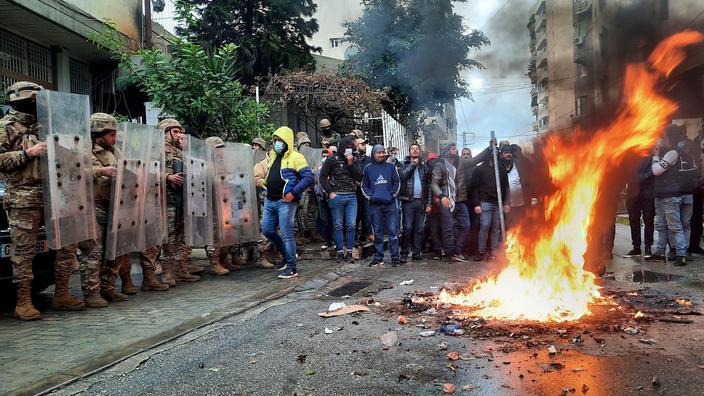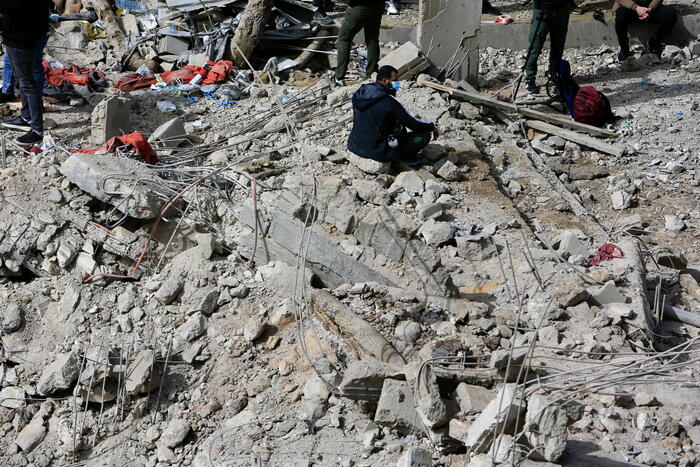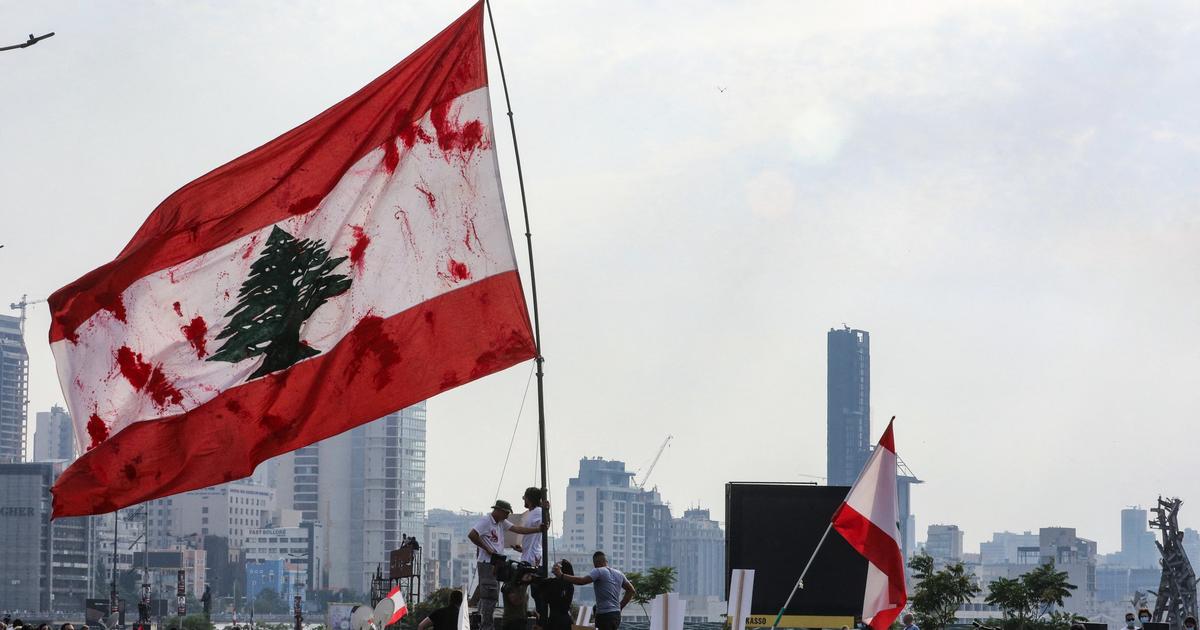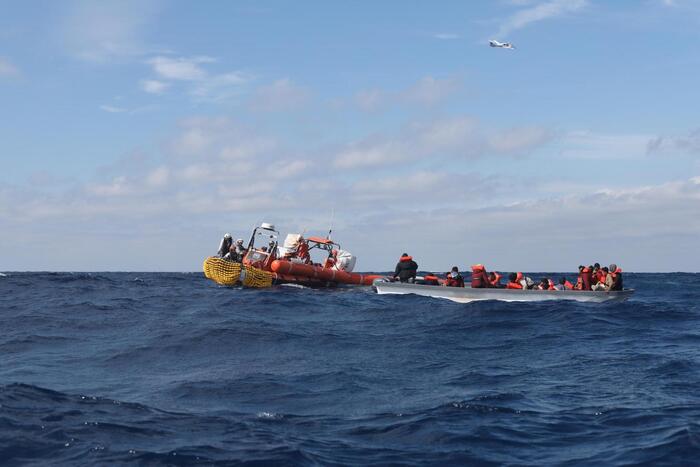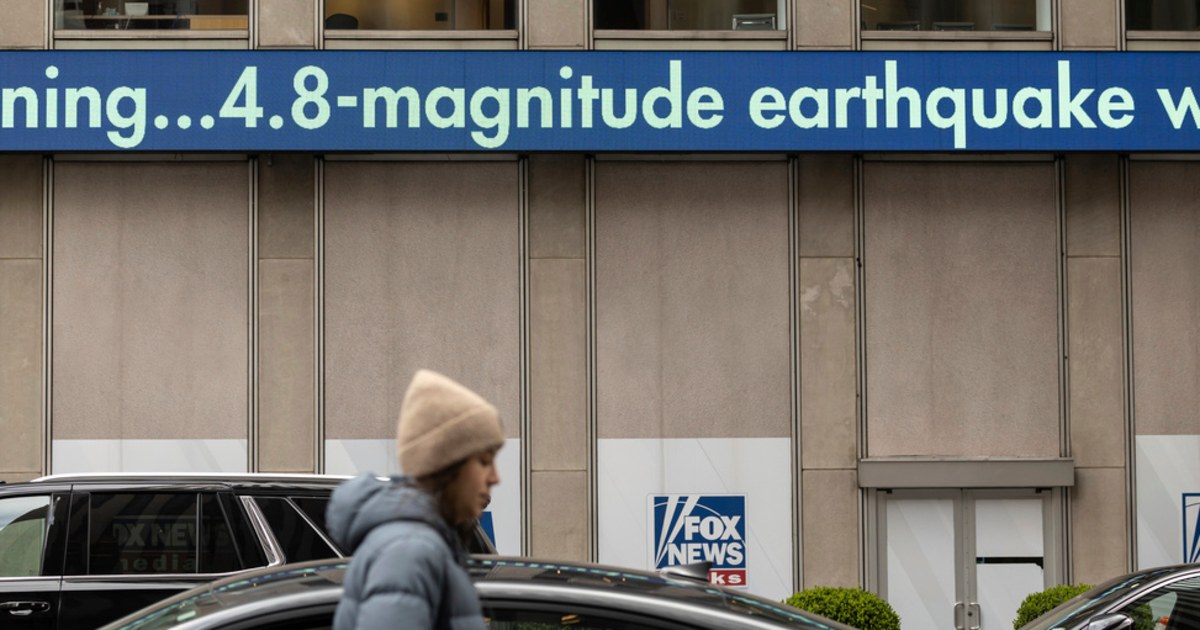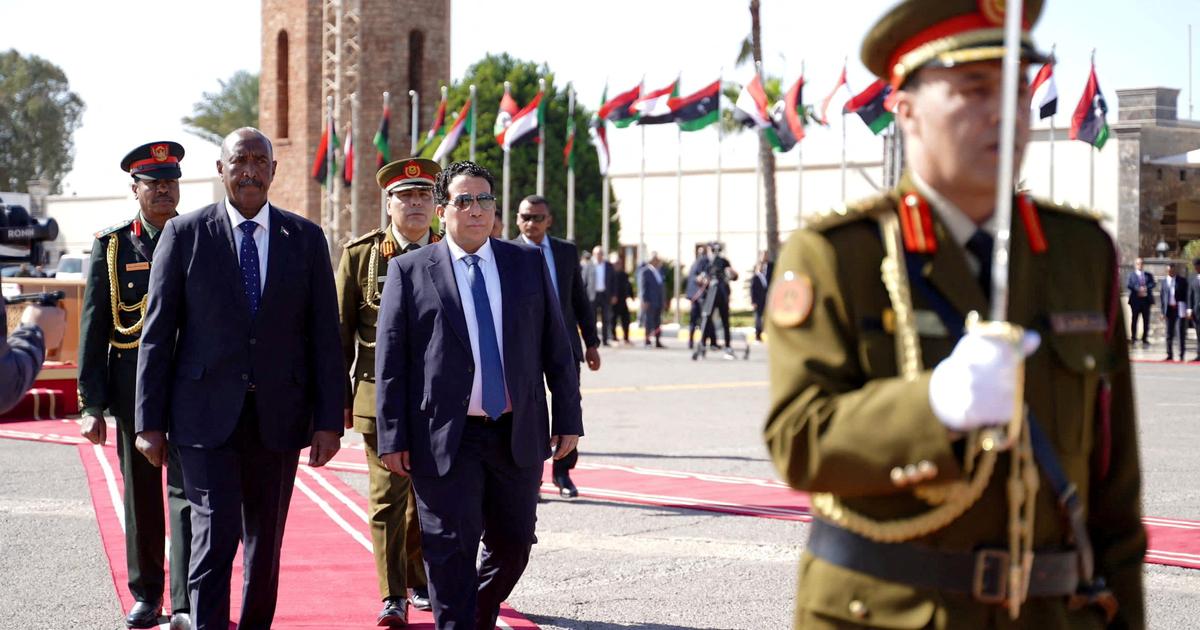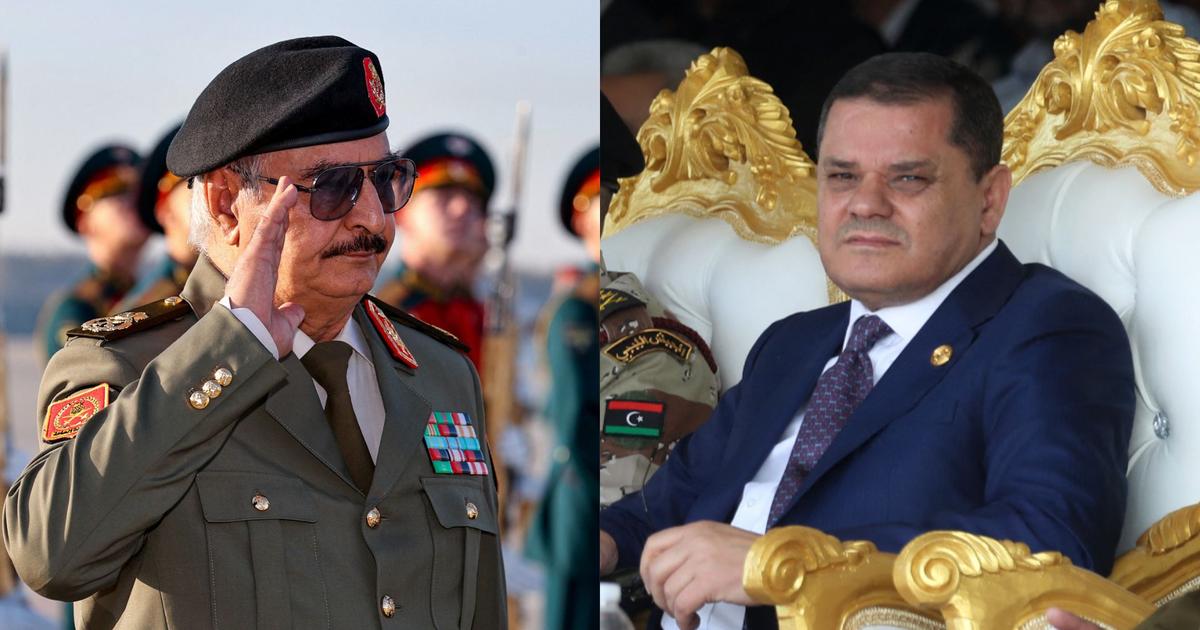Once again, Tripoli sinks into violence.
In recent days, the city of northern Lebanon has been the scene of protests.
More than 400 people were injured and a man lost his life Thursday, January 29, hit by a bullet from the police.
Read also: In Lebanon, the hospital sector is faltering
Lebanon has been subjected since January 14 to one of the strictest confinements in the world that the population no longer accepts.
Health measures worsen the economic distress of a country which is enduring its worst crisis since the civil war (1975-1990), and where half of the population today lives below the poverty line.
On Thursday evening, the angry crowd attacked Tripolitan residences of political figures, torching dumpsters and smashing surveillance cameras.
The demonstrators had thrown molotov cocktails at the end of the day in the premises of the town hall of the city, causing a violent fire.
To read also: "The daily life of the Lebanese today: my testimony"
Already in October 2019, Tripoli was the epicenter of popular protest that called for profound changes in the political life of the country, marked by confessionalism, corruption and the omnipresence of figures directly linked to the civil war.
In recent days, the same grievances were brought by the demonstrators, who still demand a renewal of the ruling class.
VIDEO - Health and economic crisis in Lebanon: the town hall of Tripoli set on fire by demonstrators
Tripoli, a city left behind
All over Lebanon, confinement has directly impoverished the population, but Tripoli, because it is a particularly poor city, is suffering the economic consequences of health measures.
"
These measures are undermining the informal economy, on which most of the city's population lives
," explains Raphaël Gourrada, author of a political science thesis on Lebanon at the École des Hautes Etudes en Sciences Sociales (EHESS ).
Most Tripolitans are not salaried and live from daily work, they are taxi drivers, traders, or even workers.
The confinement plunges them into misery.
The second city of the country, a time rich in its flourishing port activity, has not ceased to lose its economic attractiveness since the 1920s. At the time, the formation of greater Lebanon, an autonomous state of Syria under French mandate, marginalized this city, eccentric, in favor of Beirut, the capital.
The impoverishment of the city has been accompanied by an increase in violence.
The city is the prey of local mafias, whose clans (Alawites and Sunnis) share the districts.
From the 1960s, the war brought its share of refugees, first Palestinians, then Syrians, accentuating tensions.
Since the 1980s, this strongly Sunni city has also been a breeding ground for Islamism.
“There is no major public policy to support the city.
The clientelism of the city led to this disinterest, and today, Tripolitans feel marginalized ”
Raphaël Gourrada, Doctor of political science, analyst at the Open Diplomacy institute
Today, the population suffers from a lack of consideration and interest from the political class.
Occupied until 2005 by the Syrians, Tripoli carries with it the image of a rebellious city.
“
There is no major public policy to support the city,”
explains Raphaël Gourrada.
The patronage of the city has led to this lack of interest, and today, Tripolitans feel marginalized
”.
All these factors contribute to making Tripoli a city under constant tension which the economic and political crisis has caused to explode.
Najib Mikati, a former prime minister from Tripoli, now one of the richest men in the country, even threatened to take up arms in self-defense, in an interview with Al-Jadeed television channel. .
"
If the army is not able to control the situation in Tripoli in the coming hours, then we will go to an even worse situation, and I could take up arms to protect myself and the institutions,
" he declared.

